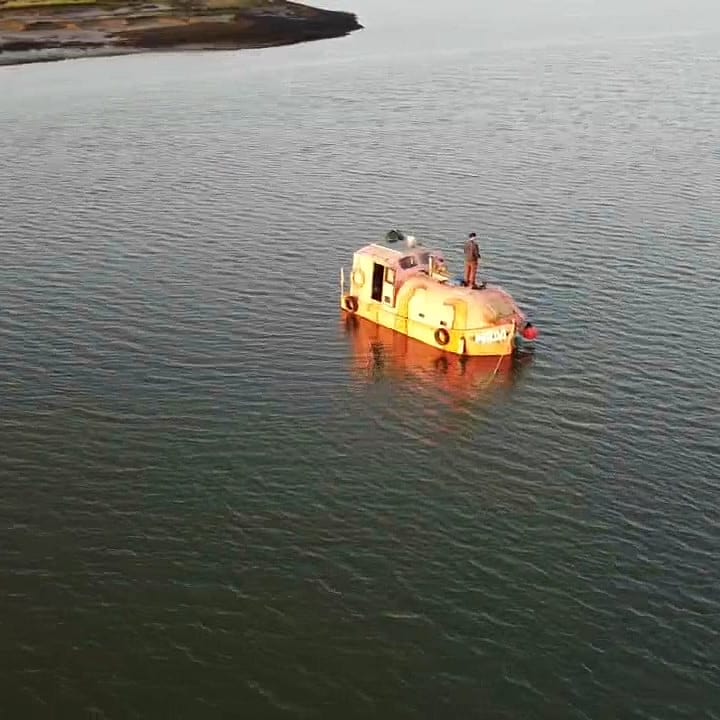It’s no sin to have to submit to the #dotcons overlords—we all do it, whether we like it or not. Just recently, I found myself installing that vile spyware known as #WeChat because this was the only way to talk to the people I needed to talk to. That bitter swipe to hide the app from view brought a momentary sense of agency, but the reality remains: we are still too often failing at building out the #openweb that normal people find useful
The fundamental question is: why? It’s too easy blaming users. After all, if they just cared more, if they just tried harder to use open tools, we wouldn’t be in this mess. But let’s be honest: this isn’t on them. The real fault lies with the so-called “open developers” who have spent the last 20 years failing to make open tools actually work for normal people. And before anyone objects, yes, I’ve been in the trenches. I’ve been building, testing, promoting, and using these tools for two decades. I’ve seen what works, and more often, what doesn’t.
The truth is stark: “open development” is way too often a dead end. The current paths isn’t going anywhere useful. There are way to meany dysfunctional ecosystems of half-built projects, overcomplicated interfaces, and insular communities that gatekeep instead of welcoming. Meanwhile, the #dotcons corporate silos grow ever stronger, locking out alternatives at every turn. And what do the open devs do? They tinker endlessly on the backend, build for themselves rather than for real people, and when questioned they retreat into ideological purity rather than engaging in practical bridge-building. The #geekproblem is not just one of incompetence, it’s one of misplaced priorities and an aversion to social reality.
Control vs. Trust is the core divide, at the heart of the #geekproblem lies a fundamental misunderstanding of social dynamics. The #OMN sees the solution as building bridges, while the dominant geek mindset sees it as erecting gates. A gate is about control: who gets in, who stays out, who holds the keys. A bridge is about trust: connecting communities, facilitating movement, and breaking down barriers. Yet, the geek worldview, deeply shaped by corporate structures, #neoliberal ideology, and a toxic engineering mindset, defaults to control every time.
This is why open projects fail. They mimic the structures of the #dotcons without the resources to sustain them. They chase security and rigidity at the expense of usability and social flow. They then see failure as an inevitable technical problem, rather than a failure of community engagement and human-centred design. And worst of all, they refuse to recognize that openness isn’t just about code, it’s about social process. What needs to change:
- Stop building for yourself, the #openweb won’t be rebooted by developers coding for their own niche needs. It needs to serve real people, communities in real contexts.
- Embrace messiness, if it’s not messy, it’s not worth doing. The corporate mindset is about tidiness and control. The #openweb must be about adaptability and flexibility.
- Then the is leaky by design – Data and communication should leak in ways that benefit social needs, but yes, not in ways that serve the surveillance economy. Locking everything down means locking serendipity out.
- Bridge, don’t block: Instead of obsessing over ideological purity, we need to build pragmatic solutions that work alongside existing tools while providing clear alternatives.
- Trust as the foundation: The default state of open networks should be trust, not fear. We have seen where the obsession with security leads, it builds walls instead of communities.
There are paths forward, and a good place to start is with the principles of the #OMN and #4opens. These aren’t abstract theories; they’re rooted in decades of radical tech and media movements that worked, before they were systematically ignored and buried by the rising tide of centralized control. It’s time to stop pretending the current model will somehow fix itself. It won’t. We need to go back, dig up the roots, and start again, not with another doomed attempt at technical perfection, but with a renewed commitment to social usability, community-first development, and a radical rejection of the failed control-based mindset.
The alternative is simple: keep failing, keep watching the #openweb erode, and keep making excuses while we all install the next piece of #dotcons spyware just to stay connected. The choice is ours, but the time to act is now.

